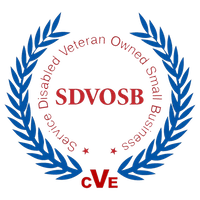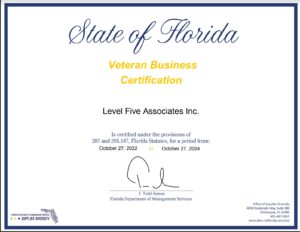In our experience, a leader who micro-manages a team is insecure. This is almost always the case with young and inexperienced leaders, but with practice and development, these leaders will mature and learn to give team members more and more autonomy and control. We recognize that leadership is a journey and we all develop our own style, at our own pace. That said, we all expect and deserve leaders who have made the journey and “get it”. No one deserves a boss who refuses to decentralize, trust, and empower.
We have all worked for a leader who was centralized and reluctant to delegate responsibility and authority. You were micro-managed and felt stifled, marginalized, and disrespected. In a short period of time, you lost passion and skip in your step. Going to “work” was no longer fun. You had no skin in the game and lost interest. The organization began to slide and defeat was right around the corner. You wanted out. Does this bring back bad memories?
The best executive is one who has sense enough to pick good people to do what needs to be done, and self-restraint enough to keep from meddling with them while they do it. –Theodore Roosevelt
Beyond this outcome, what should motivate a leader to trust and empower?
Here is our story
We began our leadership journeys in 1970 as classmates and Plebes at West Point and four years later as young combat arms lieutenants in command of platoons of 32 soldiers. The Vietnam War had just ended and the US Army was in a state of turmoil and disrepair. The war had drained our Army of talent, equipment was in very bad shape, and systems needed to be rebuilt. In those days, we were necessarily centralized with the mantra of “if it is going to get done right, we’ll need to do it ourselves”. We simply trusted no one and were off to an expected, but very bad start.
During the years that followed, we were selected to command companies of 120 soldiers, battalions of 800 soldiers, brigades of 5,000 soldiers, and ultimately, divisions of 20,000 soldiers. The span of control and responsibility continued to expand and grow in complexity. Along the way, we began to appreciate the value of decentralization, trust, and empowerment. Somewhere between the level of company and battalion command, we discovered that we simply could no longer do it all ourselves and we were not setting our organizations up for success. Most impactful were senior mentors who helped us appreciate the value of trusting and empowering our teams. These senior leaders helped us by giving us the trust we deserved and underwriting our mistakes as an opportunity to improve and get better. Out of necessity, we were forced to decentralize and our mentors encouraged us to get out of our “fear of failure” comfort zone. Admittedly, this was evolutionary and no easy journey.
We learned that it really is empowering when you are trusted, and that trust is a two way street. Integrity is non-negotiable.
We learned that the conditions must be set to decentralize, which requires alignment around the organization’s mission, intent, values, and culture.
We learned that part of alignment is removing silos in an organization. We embrace the steel mill analogy where silos are removed and replaced with one furnace burning at 3,000 degrees Fahrenheit. At this temperature, in one furnace, an organization cannot help but be transparent, cross-functional, and defined by a high degree of teamwork. Think about it.
We learned the importance of building a culture of discipline where team members could be counted on to “do the right thing when no one was looking”. This self-discipline is not only powerful, but fundamental.
We learned that today’s failure allows the team to improve and achieve better results tomorrow. Every failure is a teachable moment and an opportunity for an After Action Review (AAR) to determine what went right and needs to be sustained, what went wrong and needs to be improved, and what actions need to be taken, by whom, and on what timeline. The AAR was a driving force in the military and translated directly to business.
We learned that when we gave our team members clear mission type orders and the resources needed to get the job done, the last thing they needed was micro-management. They could be counted on to figure out the details of execution and our time was better spent in mentoring, removing obstacles, and focusing on the next strategic challenge.
We learned that team members often had better ideas than ours — that two heads are better than one. This was an eye opener.
We learned to be humble.
We learned that the first report is always wrong, to have “tactical patience”, and to not shoot the messenger. Shoot the messenger and you will never get bad news.
We learned that trusting and empowering our team had a multiplicative effect that gave back in spades. The entire team was now shouldering the burdens and committed to our collective success.
We learned the importance of encouraging and rewarding initiative. Award ceremonies in front of peers are really important. Team members are motivated and these successes become the stories that bring your culture to life.
We learned the importance of surrounding ourselves with strong, A-players. B and C-players do not hire A-players. How does your team stack up? Be honest with yourself. We were amazed how many people were seeking to be part of our teams. In business, applicants flocked to our doors and recruiting expenses all but evaporated.
We learned that team members became committed to the team. Voluntary turnover all but went away. Expenses continue to drop.
We learned the imperative of mentoring our team members. Mentoring is required and a major expectation of the leader. A leader’s success is ultimately defined by the success of his or her team.
We learned that the primary team of the commander’s or CEO’s direct reports is each other, not their respective organizations or departments. This takes a high degree of trust and goes a long way towards removing silos.
We learned that appraisal systems and talent planning are important to continue to grow the bench with leaders who walk the talk with values and appreciate the power of trust and empowerment. Do all your direct reports have a bench? Do you have a bench?
We learned the importance of measurable goals and the requirement to cascade the goals throughout the organization.
We learned the importance of delegating responsibility to the appropriate level in the organization. While some responsibility cannot be delegated, most can be to various levels in the organization. Great leaders figure this out and communicate the details with absolute clarity.
Most importantly, we learned that empowered teams achieve spectacular results. We can state with the hindsight of experience that this is true on the battlefield and in the boardroom.
Where do you and your organization stand with decentralization? What kind of a leader are you? Are you afraid of failure and delegation? Do you trust and empower? Do your team members feel trusted and empowered? Do your team members attack their responsibilities with passion and creativity?
Let’s buckle our chinstraps and figure this out. With trust and empowerment comes better margins, higher profits, growth, and more jobs. It is worth the effort.
You can read more of our posts about the concept of “trust and empower” here.





